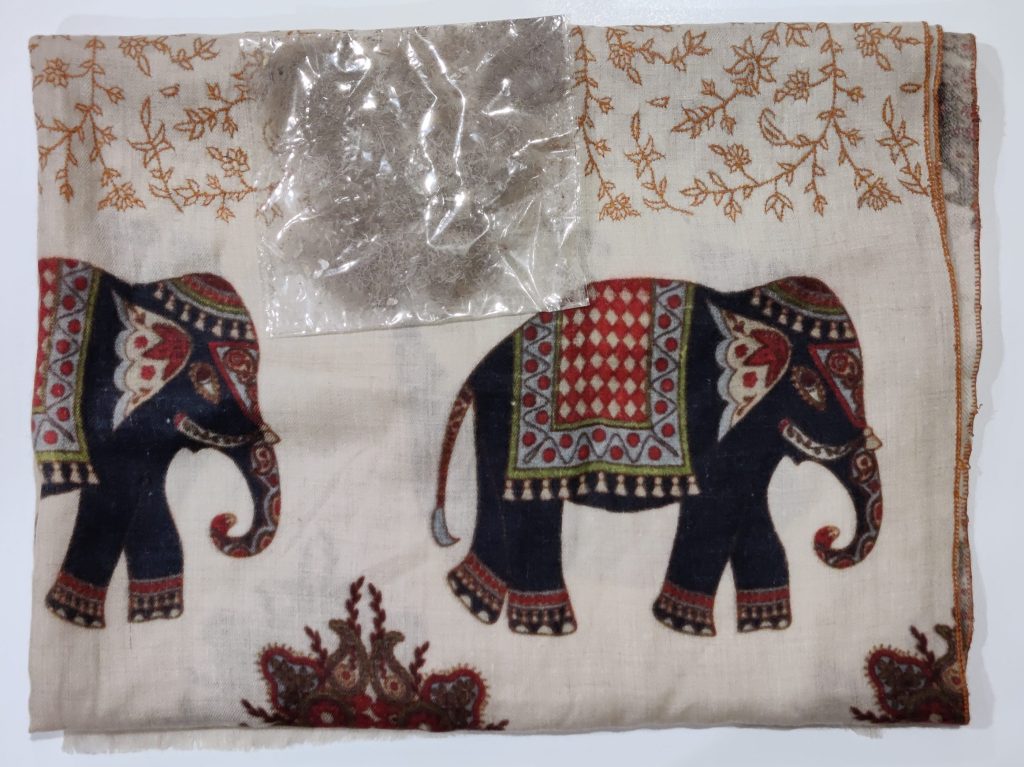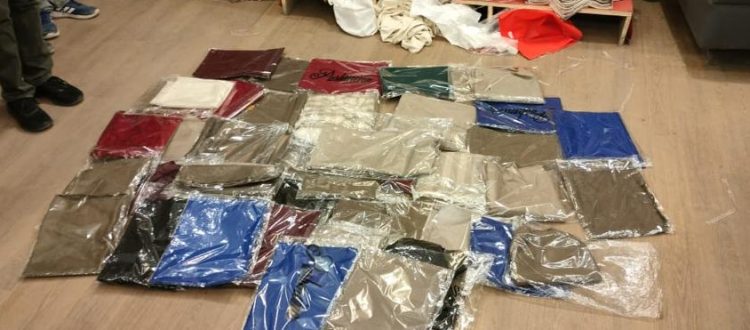The resurgence of the Shahtoosh – 350+ high-value shawls seized from Northern India
New Delhi, 12th May, 2023: In a joint operation by the Wildlife Crime Control Bureau (WCCB) and the Punjab Forest Department, more than 180 Shahtoosh shawls were seized from various shops around the capital city of Amritsar and Pathankot. This comes as a follow-up seizure in less than a week from Ladakh, where another 180+ shawls were recovered from traders.
“With more than 350 shawls resurfacing from the market, it only hints at a very active and still existent illegal trade network. It is startling that the Tibetan Antelope (Pantholops hodgsonii) is still being hunted in such huge numbers, despite the CITES ban that came into effect in 1975. It takes between three and four Tibetan antelopes to be killed to collect the wool (fine hairs of the underbelly) for a single shawl”, says Jose Louies, the Chief of Enforcement at Wildlife Trust of India. These seizures combined, points directly at the killing of more than 1400+ animals. Locally called the Chiru, these highly endemic species exists only in the high mountainous regions of Tibet’s Changtang region, along the Indo-China border. The species is listed as “Nearly Threatened” by the IUCN Red List of Species.

Shahtoosh Shawl and wool derived from Chiru | Photograph by Madhumay Mallik
A 2018-19 joint report submitted by Wildlife Trust of India (WTI) and the UNDP, under Secure Himalayas initiative also highlighted the Shahtoosh trade network and the active trade routes in the region of Ladakh and Kashmir.
A high demand contraband, the Shahtoosh shawl has quite the following among buyers in the European market. A single shawl can sell for as much as $20,000. In the Indian market, shawl prices are anywhere between INR 50,000 and INR 4,00,000 depending on the quality of the wool. Shahtoosh shawls are still being woven in Srinagar and the Pattan area of North Kashmir. Other transit points in the trade include Karzok (Tsomoriri, Ladakh), Darchula (Indo-Nepal border), Khatima (Uttarakhand) and New Delhi. The shawl finds its way to the international market via Delhi, Mumbai, Pune, Bangalore and Kolkata.
Between 2001 and 2010, WTI’s enforcement team has been able to gather information that has led to the recovery of 99 shawls from traders and the arrest of 7. As the trade continues, it is important that the enforcement actions are strengthened and the trade routes revisited. It is equally important that the demand stops so that local poachers and traders get lower incentives to stop the killings.
To know more,
Contact madhumay@wti.org.in









